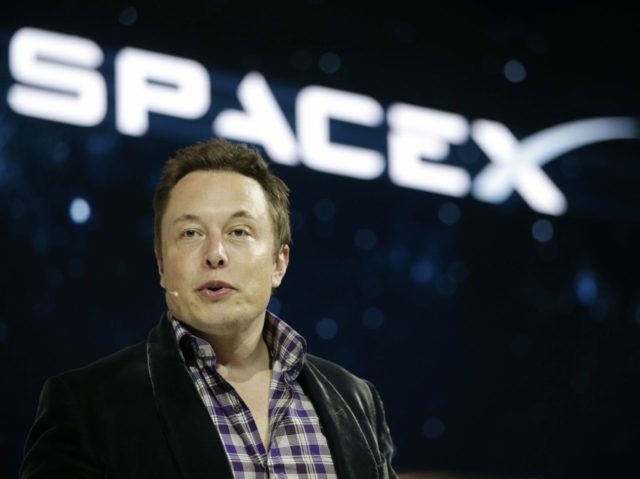Congress is looking to stop the Trump Administration from ‘Making America Safe Again’ by including special interest provisions that will benefit SpaceX CEO Elon Musk.
The Senate may soon vote on section 1615 of the House of Representatives’ FY 2018 National Defense Authorization Agreement (NDAA). This section will not allow the Air Force to continue working with companies to develop new launch systems, making the Falcon 9, produced by Musk’s SpaceX, the only affordable launch vehicle available.
Musk, who in the days before the 2016 presidential election told CNBC that Trump “doesn’t seem to have the sort of character that reflects well on the United States,” was referred to as a “political grandstander” by the president after he resigned from his advisory councils earlier last month. Musk has likely received more than $5 billion in government aid, and 85 percent of his aerospace company’s contracts come directly from the federal government.
Producing a new launch vehicle is important because Congress has mandated an end to the use of the Russian RD-180 engine, which the Atlas V, the Falcon 9’s leading competitor, depends on. The Delta IV, another EELV, is being phased out due to cost issues. Therefore, Musk’s company would be the last one standing.
The Pentagon is already overseeing the development of new engines, but to protect America’s security and prevent one company from obtaining complete monopoly status, a new launch vehicle is needed. Deborah Lee James and Frank Kendall III, then-Under Secretary of Defense and Secretary of the Air Force, made this clear in congressional testimony, stating, “any effort to simply replace the RD-180 with a substitute engine would require extensive design and engineering changes, as well as significant dynamic and acoustic testing, and would ultimately result in a new launch system, which would require recertification.”
The Trump administration has said it “strongly objects to section 1615,” because it would “restrict development of new space launch systems, including those whose development is significantly funded by industry, in exclusive favor of rocket engines and modifications to existing launch vehicles.” It went on to say that “the provision limits domestic competition, which will increase taxpayer costs by several billions of dollars through FY 2027 and stifle innovation.”
Even former congressman Ron Paul, a historically harsh critic of Pentagon decision-making, expressed his disapproval of this Musk giveaway. In an op-ed for Fox News, he wrote that “Allowing SpaceX to obtain a monopoly over launch services harms taxpayers much more than forbidding the Pentagon from purchasing Russian products harms Vladimir Putin.”
These critics are undoubtedly correct. While SpaceX has commendably cut costs in many ways, it has also raised concerns about its reliability, wasting close to $200 million in taxpayer funds through its exploding rockets over the past two years. Having this company as the sole provider would be risky from a national security standpoint. Aside from the failures though, it’s always good from an innovation standpoint to have price competitive rivals, which developing a new launch vehicle should certainly do. A number of aerospace manufacturers are creating new systems that will help in this regard.
A possible reason some in Congress support section 1615 is because they are in the pockets of Musk. For example, Sen. John McCain (R-Ariz.), the sponsor of the Senate’s NDAA, has received large sums of money from SpaceX, both as campaign contributions and donations to the McCain Institute.
Our foreign policy is bloated with waste, from giving filmmakers $2 million to travel worldwide to “promote diplomacy” to funding $1 million variety shows in Afghanistan. The White House has reported that funding at the launch system level “has already saved taxpayers $300 million.” Let’s not carelessly throw a good thing away just to please one well-connected political donor. Our national security is worth more than a few political points.
Brian Garst is Vice President of the Center for Freedom & Prosperity.

COMMENTS
Please let us know if you're having issues with commenting.